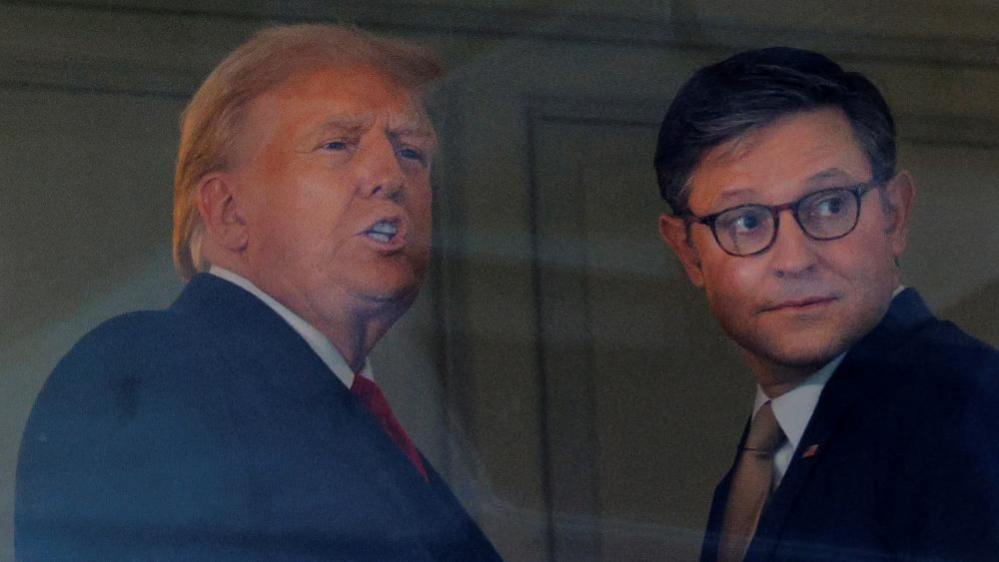Trump endorses Mike Johnson to remain as House speaker

- Published
US President-elect Donald Trump has endorsed Representative Mike Johnson to continue on in the role of House Speaker, just days before lawmakers are set to decide on who will hold the position.
The House of Representatives is scheduled to vote on a Speaker on Friday, during the first day of the 119th congressional session.
Johnson faces some opposition from within his own party after working with Democrats on a bipartisan funding plan earlier this month.
Republicans have a slim majority in the House, giving Johnson little room for defectors if he is to remain in the role, which he has held since October 2023.
Johnson, a Louisiana lawmaker, can afford to lose only two votes from his own party in order to keep the Speaker's gavel.
"Speaker Mike Johnson is a good, hard working, religious man. He will do the right thing, and we will continue to WIN. Mike has my Complete & Total Endorsement. MAGA!!!" Trump wrote in a social media post on Monday.
Kentucky Congressman Thomas Massie has already indicated he will vote no, despite the president-elect's backing of Johnson.
Several other Republicans appear to be undecided.
Trump's endorsement of Johnson may be the latest test of his influence over congressional Republicans, and if it will be enough to sway those who are undecided.
Johnson said in a statement posted on X, formerly Twitter, that he is "honored and humbled" to receive Trump's support.
"Together, we will quickly deliver on your America First agenda and usher in the new golden age of America," he said.
Republicans' frustration with Johnson stems from his handling of a recent government funding agreement.
Johnson reached the bipartisan deal with Democrats to avoid a government shutdown ahead of a 20 December deadline. Many Republicans did not support some of the Democrat-backed provisions included in the agreement.
Trump derailed Johnson's initial deal with the help of tech billionaire Elon Musk - who argued it contained wasteful spending - and called for an agreement that would also increase the federal borrowing limit.
The House of Representatives voted against the Trump-backed spending bill, with dozens of Republicans defying him by joining Democrats to reject the revised funding measure.
A final version of the bill, which eventually passed in both the House and the Senate, did not include a provision on the debt ceiling, raising the question as to whether Johnson's failure to meet Trump's demands had angered the incoming president, who will take office in late January.
The final bill removed measures sought by Democrats in the first version, including the first pay rise for lawmakers since 2009, healthcare reforms, and provisions aimed at preventing hotels and live event venues from deceptive advertising.
House Speakers have faced rebellions before.
Lawmakers ousted former Republican Speaker Kevin McCarthy in 2023, when hardliners in his party voted against him after he struck a deal with Senate Democrats to fund government agencies.